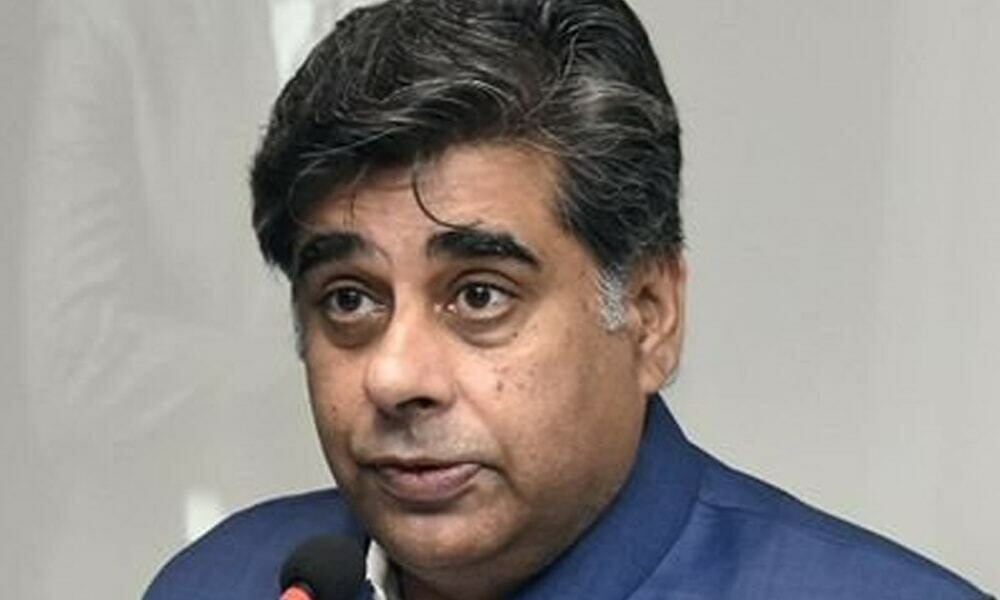The federal government is reportedly considering implementing a mini-budget to address the potential shortfall in tax collection goals set by the Federal Board of Revenue (FBR).
According to media sources, the FBR is struggling to meet the ambitious targets outlined under the International Monetary Fund (IMF) agreement, which could prompt the government to adopt additional fiscal measures to secure a $7 billion loan package.
The FBR is tasked with collecting Rs 2,654 billion in taxes during the first quarter of the fiscal year 2024-25. As of now, the board faces a significant hurdle in achieving the Rs 1,190 billion target required for the month of September 2024. Should the FBR fail to meet these objectives, the IMF may press the government to adopt a mini-budget, which would likely include various revenue-generating measures and amendments to the Finance Bill.
The FBR’s struggle to meet the tax collection goals, particularly under the scrutiny of the IMF’s Extended Fund Facility, is a critical concern for the federal government. Under this program, the IMF has imposed strict conditions on Pakistan to ensure fiscal discipline, which includes achieving specific tax revenue targets. The potential failure to meet these targets could delay the disbursement of the $7 billion loan, a vital lifeline for Pakistan’s economy.
The IMF’s involvement comes as Pakistan faces a challenging economic situation, marked by rising inflation, a devaluing currency, and growing fiscal deficits. To remain eligible for the IMF’s support, the government must demonstrate its ability to generate sufficient revenue, and any failure to do so could result in the IMF recommending corrective measures, including a mini-budget.
If implemented, the mini-budget could involve several fiscal measures aimed at improving tax revenue collection. One of the key areas under consideration is stricter enforcement against tax defaulters. The FBR is reportedly planning to enhance its monitoring capabilities and impose tougher penalties on individuals and businesses that fail to comply with tax regulations. This would involve expanding the authority of the FBR to carry out audits and issue fines for non-compliance.
Additionally, the government may explore amendments to the Finance Bill to introduce new taxes or adjust existing tax rates. These amendments could target a wide range of sectors, including the automotive industry, property transactions, and other areas where tax evasion or underreporting is prevalent. The aim would be to close loopholes and generate additional revenue from sectors that have traditionally evaded taxation.
Another measure being considered is the enforcement of higher withholding taxes on individuals who fail to file their income tax returns on time. The FY2024-25 budget introduced a new category for late filers, and the mini-budget could impose stricter penalties on this group. For example, late filers may face increased withholding taxes on various transactions, including vehicle token fees and property sales, for up to two years.
The government has set a September 30, 2024 deadline for the submission of income tax returns. Taxpayers who fail to meet this deadline will be classified as late filers and subject to the heightened penalties. This move is part of a broader strategy to encourage timely tax filings and improve overall compliance within the tax system.
As part of the mini-budget, the government is also considering expanding the enforcement powers of the FBR. This could lead to increased penalties for non-compliance, including harsher fines for tax evasion and underreporting. The FBR may also be granted more authority to conduct audits and investigations into businesses suspected of tax fraud. The goal is to increase the effectiveness of the FBR’s operations and ensure that the country’s tax laws are being followed.
These expanded powers would enable the FBR to take a more aggressive stance against defaulters, potentially improving overall tax compliance. However, such measures may also raise concerns among businesses about the increased scrutiny and the potential for errors or overreach by tax authorities.
The federal government’s contemplation of a mini-budget reflects the challenges it faces in balancing its fiscal responsibilities with the economic realities on the ground. As Pakistan seeks to meet its obligations under the IMF agreement, the introduction of additional revenue-generating measures could become necessary to bridge the gap between current tax collections and the targets set by the international lender.
The next few weeks will be critical in determining whether the government will need to adopt a mini-budget. The outcome of September’s tax collection efforts will likely play a key role in shaping the government’s decision. Should the FBR fall short of its goals, the government may have no choice but to introduce new fiscal measures, including adjustments to the Finance Bill, increased enforcement against defaulters, and stricter penalties for late tax filers.
As the government works to stabilize the economy and meet the IMF’s conditions, the potential for a mini-budget serves as a reminder of the ongoing fiscal challenges Pakistan faces. The decisions made in the coming months will not only impact the country’s economic trajectory but also its ability to secure international support and maintain financial stability.




